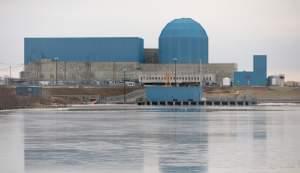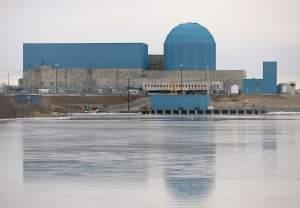
Illinois Issues: The Prairie State’s Nuclear Waste Conundrum
The story of how the Land of Lincoln became the nation's biggest de facto nuclear waste dump is a tale of public fear, political pragmatism and the power of NIMBY (Not In My Back Yard).

The story of how the Land of Lincoln became the nation's biggest de facto nuclear waste dump is a tale of public fear, political pragmatism and the power of NIMBY (Not In My Back Yard).

This is a report on the economy of a little town with a big power plant. The nuclear power plant located near the small town of Clinton (population 7,225) will be around for at least another decade. Governor Bruce Rauner signed legislation Wednesday that subsidizes Exelon’s nuclear facilities, and prevents the Clinton and Quad-Cities nuclear plants from closing. Exelon says its Clinton plant has been a money-loser for some time. But it’s been a big part of the economy in Clinton and DeWitt County ever since initial construction began in the 1970s.

One Illinois lawmaker is encouraged that Governor Bruce Rauner and his staff are part of the conversation on legislation to prevent two Illinois nuclear power plants from closing.

In a last minute bid to gain support ahead of Illinois' veto session, a massive piece of energy legislation designed to help two money-losing nuclear power plants owned by Exelon is being scaled back.

Illinois legislators have introduced a plan meant to save a pair of nuclear power plants. The measure, with a big hike in energy prices, has grown far beyond its original purpose. It's meant in part to save Exelon's nuclear power plants in Clinton and the Quad cities -- and many jobs in those communities.